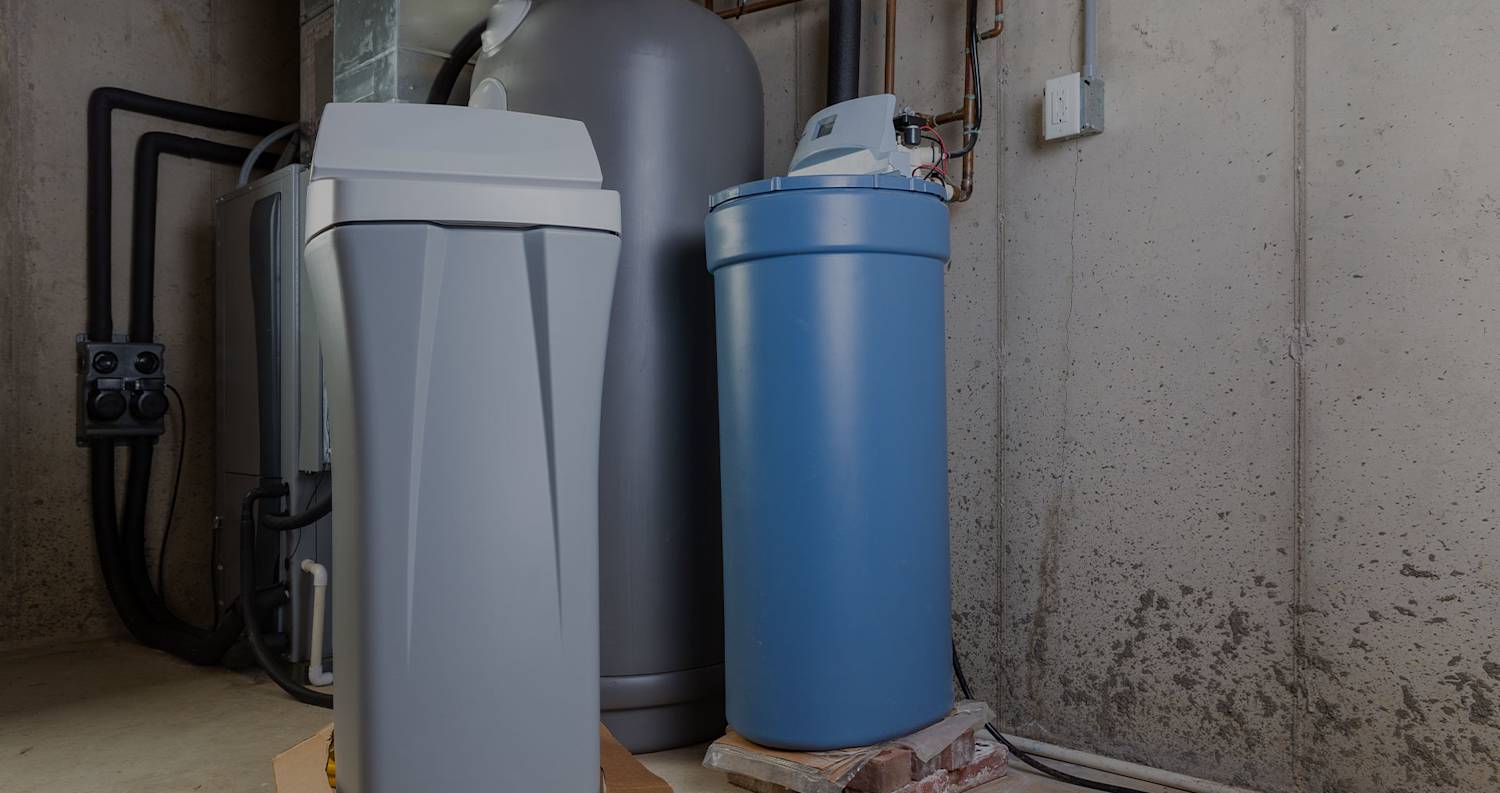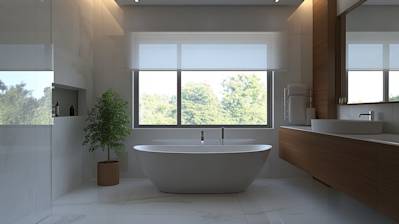Water as clear and refreshing as it might appear, sometimes carries with it certain minerals and impurities that aren't beneficial in the long run. One of the most common substances found in hard water is calcium and magnesium. These elements are not hazardous to health, but they can cause severe damage to your household appliances and plumbing system. This is where water softeners step in. This article will walk you through the major aspects of water softener installation, a process that can improve the quality of water in your home while extending the lifespan of your appliances.
Understanding Water Softeners
A water softener is a device that eliminates minerals from water, ultimately transforming hard water into soft, mineral-free water. Minerals in hard water are removed through a process called ion exchange. The efficiency of your water softener is primarily determined by its quality and installation process.
Why You Need Professional Water Softener Installation
While some homeowners choose to install water softeners themselves, it's advisable to hire a professional who is familiar with the nuances of installing these systems. Here are some reasons why professional installation can prove to be an excellent investment:
-
Proper positioning and setup: A professional would know the best location to install your water softener for maximum efficiency.
-
Code compliance: Professionals are well-versed in building codes and regulations associated with water softener installation.
-
Safety: Professionals have the required tools and safety equipment to ensure a safe installation process.
-
Time-efficient: You can save a considerable amount of time by letting a professional handle the task.
Factors to Consider Before Water Softener Installation
Type of Water Softener
There are quite a few types of water softeners available in the market. Before you finalise your purchase, research your options and decide between salt-based, salt-free, dual-tank, or magnetic water softeners.
Size of the Water Softener
Getting the right size of water softener is crucial. You must consider the hardness of your water, the number of members in your household, and daily water usage to determine the right size.
Water Softener Features
You may get a basic model, or you may opt for a high-tech one with various features like easy-to-control settings, a user-friendly interface, and even smartphone connectivity for remote management.
Water Softener Installation Costs
The cost of water softener installation can vary significantly based on various factors. For instance, a system with advanced features will be more expensive than a basic one. However, thinking of the installation cost as an investment rather than an expense can be beneficial in the long run, and save you from the problem of frequently changing and repairing household appliances.
Steps Involved in Water Softener Installation
The professional installation of a water softener typically involves the following steps:
- Choosing the installation location
- Docutting the water supply line
- Mounting the water softener unit
- Connecting the unit to your water supply
- Connecting a discharge pipe to the unit’s drain valve
- Adding salt to the unit (if applicable)
Always rely on professionals to perform these steps to avoid any mishaps or placement errors during the installation process.
Maintaining Your Water Softener
After your water softener installation, it's vital to conduct regular maintenance checks to ensure your system is running efficiently. Maintenance includes checking salt levels, cleaning the tank periodically, and scheduling regular professional checks.
The benefits of installing a water softener can far outweigh the initial cost. Whether you're seeking to benefit from cleaner, softer skin and clothes, or wanting to extend the life of your household appliances, a water softener can be the perfect solution. Just ensure you hire a professional for water softener installation and follow the necessary maintenance routine to reap long-lasting benefits.
Frequently Asked Questions about Water Softener Installation
What is the purpose of installing a water softener?
A water softener installation serves to remove minerals like calcium and magnesium from your water supply which can cause the water to be hard. This leads to several unfavorable outcomes such as damaging household appliances, leaving residues on dishes and surfaces, staining sinks and drains, and increasing skin irritability. Therefore, a water softener is installed to counteract these issues, resulting in softer, more manageable water for the home.
Where should I install my water softener?
A water softener installation should ideally be done at a point where the water supply enters your home. This ensures that the water flowing through your pipes is softened before it reaches your appliances, reducing the possibility of limescale buildup. However, the location also depends on practical factors like space availability, accessibility to a drain for backwashing, and closeness to the main water line.
Can I install a water softener by myself?
While water softener installation can be a do-it-yourself task for those who are exceptionally handy and have an understanding of plumbing, it's generally recommended to have a professional install it. This is because improper installations could lead to leaks and potential property damage. Moreover, professional technicians can provide advice on the best system for your needs, ensuring optimum efficiency.
How long does it take to install a water softener?
The water softener installation process usually takes about three to four hours. However, the time can significantly vary based on the model, the complexity of the installation, and if any complications arise.
What does the installation process involve?
Water softener installation involves several steps. Initially, the setup location is determined in the house. Then, the water supply is turned off, and your water softener is put into place. Connections are made to the main water line, followed by the setup of the discharge or drain line. Once the connections and setup are confirmed to be correct, water is allowed to flow into the unit, and initial testing begins.
What kinds of water softeners can be installed?
The three primary types of water softeners that can be installed include ion-exchange (salt-based) water softeners, salt-free water softeners, and magnetic or electronic water softeners. The best choice for your home will depend on your specific water needs, budget, and the hardness level of your water.
What is involved in maintaining a water softener after installation?
Maintenance for a water softener after installation mainly involves refilling the salt in the brine tank of a salt-based water softener, keeping the system clean, and occasionally checking for any leaks or malfunctions. Regular maintenance ensures the longevity and efficiency of your water softener.
Is there any specific water hardness level to consider before installing a water softener?
Yes, it’s recommended to test your water hardness level before deciding to proceed with a water softener installation. If your hardness measures over 7 grains per gallon (gpg), that generally indicates a need for a water softener. However, if your water hardness level is under 7 gpg, you might not need a system unless there are other specific issues, such as high iron content.
Pros of Installing a Water Softener
Better Quality of Water
The most notable benefit of having a water softener system installed is the improved water quality. Softened water is purged of excess minerals such as calcium and magnesium. Benefits include:
- Purer drinking water that's free from harmful minerals.
- Improved taste as opposed to hard water which sometimes has an unpleasant metallic taste.
- Better for cooking as the removal of hard minerals can enhance the flavor of food and beverages.
Extends the Life of Plumbing and Appliances
With a water softener system, damage to pipes caused by mineral buildup is reduced. The benefits cover:
- Preventing scale buildup in pipes and fixtures, thereby avoiding costly replacements and repairs.
- Extended lifetime of water-based appliances such as coffee makers, dishwashers, and washing machines.
- Less strain on the water heater leading to lower energy consumption and prolonged equipment life.
Enhances Cleaning Efficiency
Water softeners enhance the cleaning process by getting rid of hard minerals which can affect the soap's ability to clean efficiently. Key benefits include:
- Better soap lather for smoother washing and bathing experience.
- Less soap scum and mineral stains on dishes and bathroom fixtures.
- Clothes and linens becoming softer, brighter, and longer-lasting.
Cons of Water Softener Installation
Initial Costs
Initial costs of installing a water softener system may be considered high, depending on the type of system you choose to install. Cons include:
- Professional installation can be expensive.
- High-class models come with high costs.
- Pre-installation plumbing upgrades may be needed.
Maintenance Costs
The upkeep of a water softener demands time, energy, and financial resources. The disadvantages can be:
- Regular purchase of salt or potassium needed for the ion exchange process.
- Additional water expenses due to system's regeneration cycle.
- Potential repair costs if the system malfunctions.
Environmental Concerns
Though water softeners offer many benefits, they can contribute to some environmental issues. Consider the following negatives:
- The salt used in some softeners can damage soil structure and pollute groundwater if not properly managed.
- Water softeners can waste water during the regeneration process.
- Regular disposal of used filters can lead to solid waste generation.
Potential Health Concerns
Some health concerns may arise for individuals on a low sodium diet. The cons may encompass:
- The sodium ions used to replace calcium and magnesium ions might increase sodium levels in the softened water.
- Removal of minerals like calcium and magnesium, which have nutritional value.
- People on a low-sodium diet may need to monitor their consumption of softened water.
Summary
Getting a water softener installation in your home is a smart move if you're dealing with hard water issues. It not only enhances the quality of water but also increases the lifespan of appliances which use water. Remember, though, an incorrect installation may lead to water leaks and damage. Therefore, it's always good to trust professionals with the job.
Your decision to opt for a water softener installation shows your consideration for your home and health. Better tasting water, smoother skin, cleaner dishes and longer-lasting appliances are just a few of the advantages you'll notice after the installation. Take time to maintain the system properly and it'll serve you well for years.
The process of water softener installation might seem complicated at first, but once done, the benefits are undeniable. With increased appliance longevity, improved water taste and texture, and possible health improvements, it's a worthwhile investment. Remember, a properly installed and maintained water softener can lead to significant savings and higher quality of life in the long run.
About KYPD Plumbing
Meet KYPD Plumbing, your friendly neighborhood plumbing group based in Nicholasville, KY. With an unwavering dedication to top-notch service and impeccable expertise, we've been transforming plumbing problems into plumbing solutions for our valued customers in the local community. Our reputation is built on trust, reliability, and a ton of hard work. To us, it's not just about fixing pipes and leaks - it's about enriching people's lives, one service visit at a time!
Tags: Water Softener, Installation, Guide,














